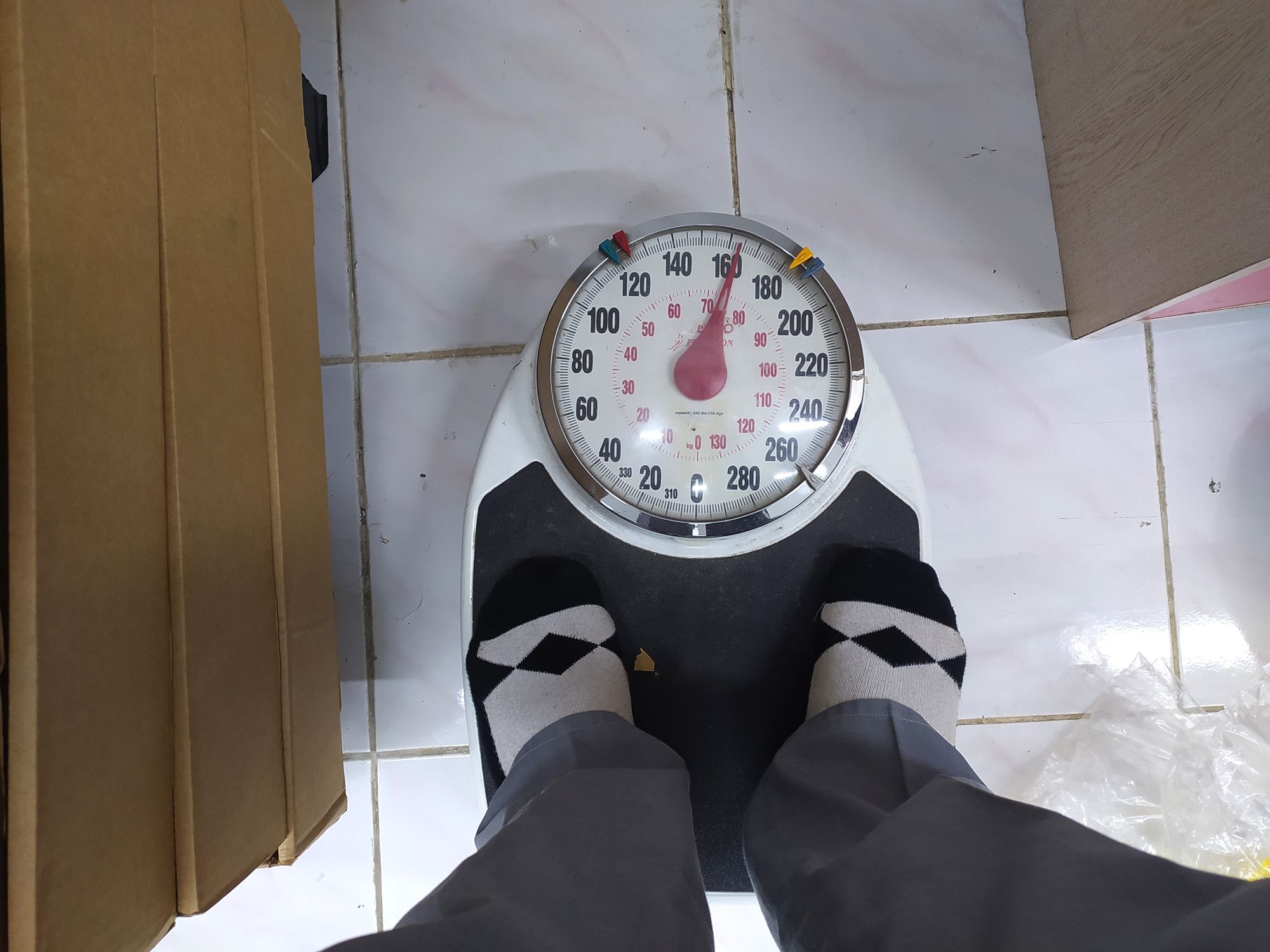Let's face it: Losing weight can be a demanding journey. Unfortunately, there's no magic wand to instantly make the numbers on the scale drop. It can be especially frustrating when you're putting in the effort, doing all the right things, and still not seeing the results you want. Does this sound familiar? We understand, and that's why Eat This, Not That! reached out to experts to explain why this can happen and offer guidance on how to shift the scale in a more favorable direction.
It's crucial to maintain patience because achieving fitness goals is not an overnight process. Sydney Yeomans, NASM CPT, and Director of Fitness for BODY20, advises, "While some changes may be noticeable in the first month, achieving specific goals often requires three to six months. Weight loss is influenced by a variety of factors including genetics, workout effectiveness, and diet. Since everyone's body responds differently, identifying what works best for your body can help accelerate your progress." So, keep up the good work—you'll reach your goals! If you find yourself exercising without seeing weight loss results, continue reading to discover the reasons behind it and how you can make the necessary adjustments.
Exercising Without Weight Loss? Here's the Explanation.
When your aim is weight loss, maintaining focus on your goal becomes essential. Our experts reveal some hidden factors that might be hindering your progress and offer insights on how to tweak your routine for better results.
1) You're Only Concerned with Gaining or Losing Weight

Avoid becoming too fixated on the number displayed on the scale and instead pay attention to how your clothing fits. It's important to recognize that building muscle may not result in a lower number on the scale—and that's perfectly fine.
Yeomans emphasizes, "It's advisable not to concentrate exclusively on weight loss or weight gain. When you follow a proper exercise regimen and maintain a healthy diet, fluctuations in weight are normal. If your weight remains consistent despite adhering to all the right practices, it could be because you're gaining muscle. Muscle is denser than fat, so your weight might not change, but you'll notice significant changes in your body's appearance. Therefore, it's crucial to assess your overall body composition, which includes body fat percentage and muscle mass, to gain a better understanding of the transformations happening on your fitness journey."
2) Your Consistency is Lacking

Achieving weight loss hinges significantly on maintaining consistency. It's the synergy of your dietary choices and following a suitable exercise regimen.
Yeomans explains, "Weight loss is predominantly influenced by a 80% diet and 20% exercise ratio... Many individuals face challenges with weight loss primarily because of inconsistent efforts. While some may assume that occasional healthy meals and sporadic workouts will be adequate, an erratic approach can impede progress … Even dedicating just two 20-minute sessions per week can yield
3) Your Dietary Plan Isn't Yielding the Expected Results

When it comes to weight loss, it's crucial to have a comprehensive understanding of your dietary intake and exercise routine to ensure a daily calorie deficit. However, it's worth noting that many individuals struggle with maintaining an appropriate diet, which can become a significant obstacle.
"A common misconception is that intermittent eating, combined with regular workouts, will lead to weight loss. However, the human body doesn't function in that manner. If someone consistently exercises but consumes too few calories, the body turns to stored fat for energy," Yeomans emphasizes. "On the other hand, it's equally vital not to overindulge. Exceeding your daily calorie requirements can also impede your weight-loss endeavors.
4) Lack of Sleep

You might be wondering about the connection between sleep and weight loss, but it plays a significant role. Tyler Read, the founder of PTPioneer.com and a personal trainer with 15 years of experience in the health and fitness field, explains, "Inadequate sleep can disrupt the hormones responsible for regulating appetite and metabolism, making weight loss more challenging."
The National Sleep Foundation recommends that adults aged 18 to 64 aim for seven to nine hours of sleep each night, while adults aged 65 and above should target seven to eight hours of sleep. If you're falling short of these recommendations, it's essential to investigate the reasons behind them.
5) You Struggle with Insufficient Stress Management

Excessive stress can have detrimental effects on various aspects of your life, and indeed, it can hinder your weight loss endeavors, even if you're engaged in regular exercise.

